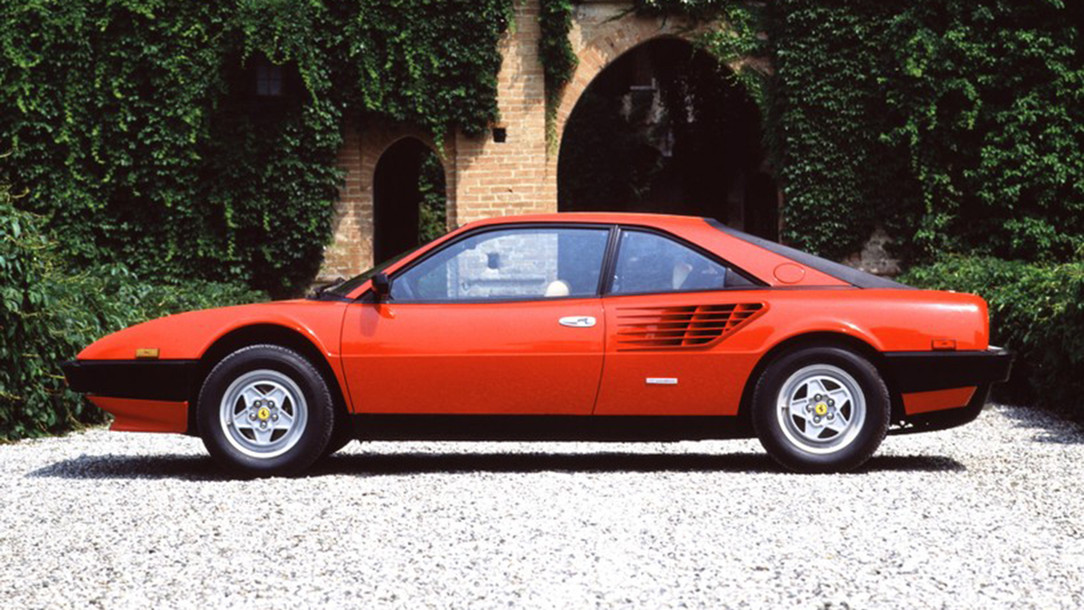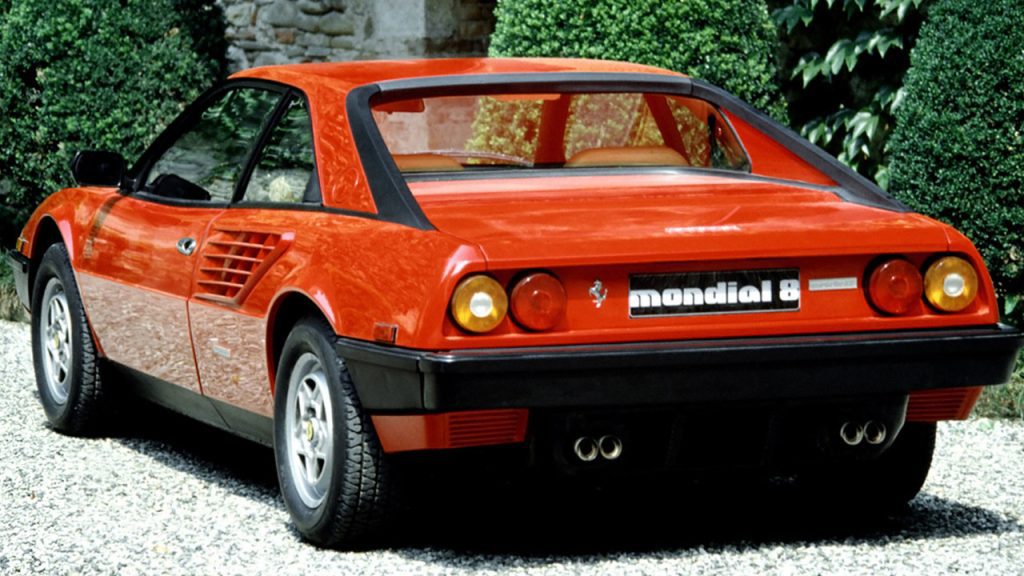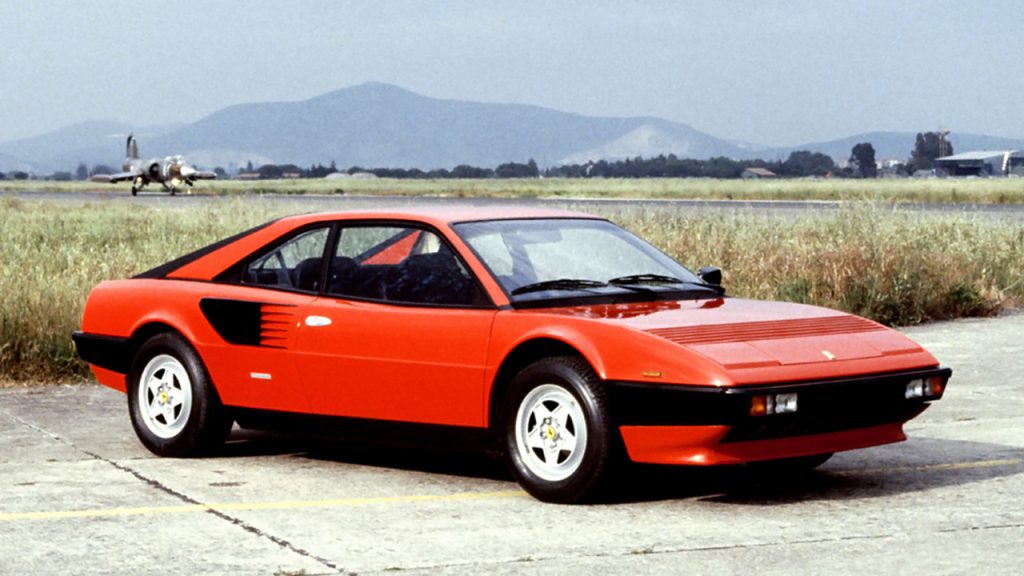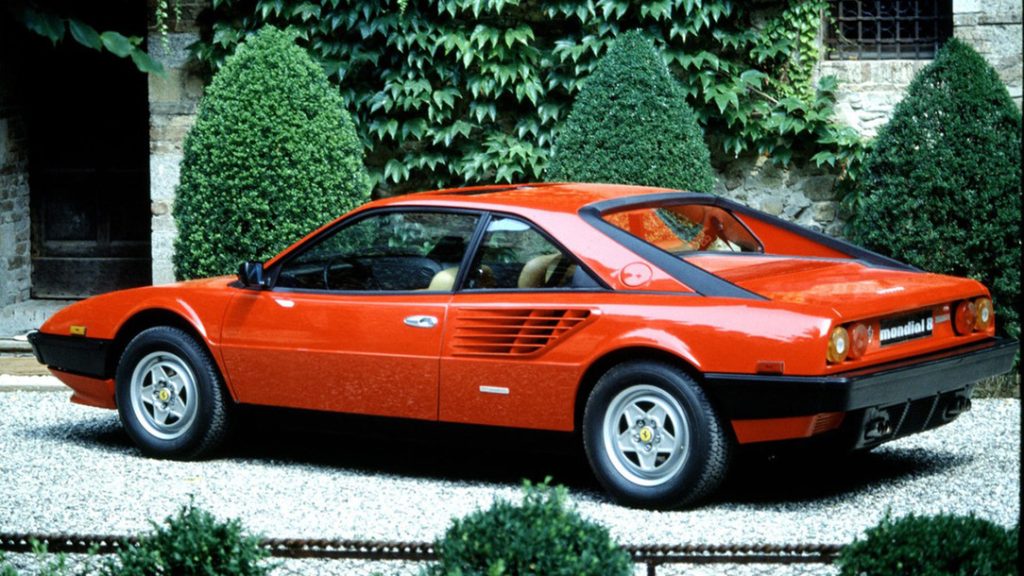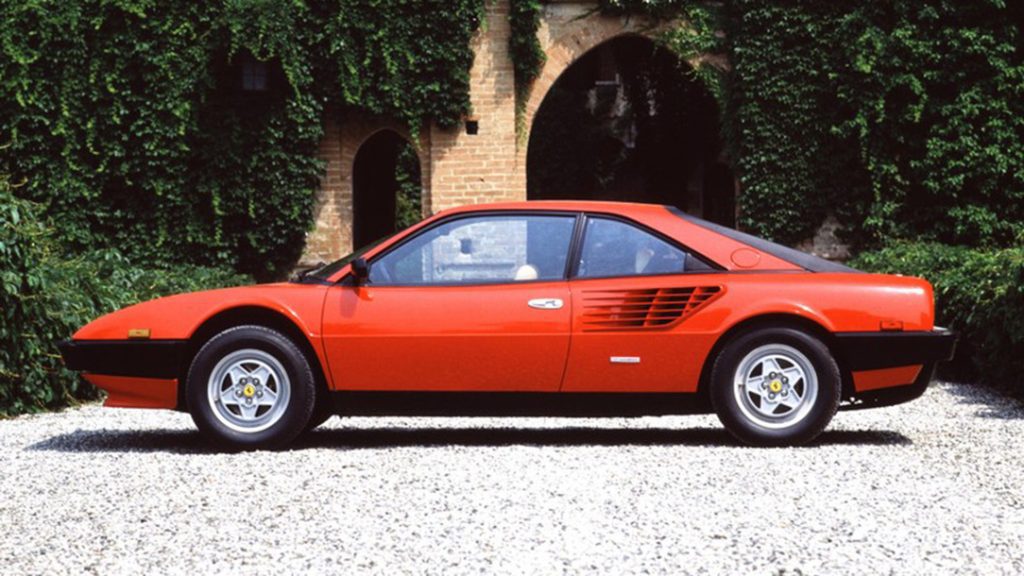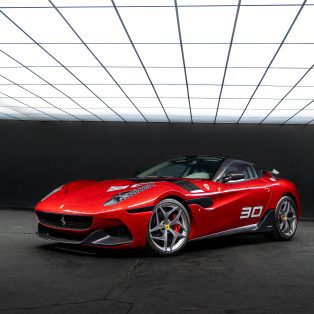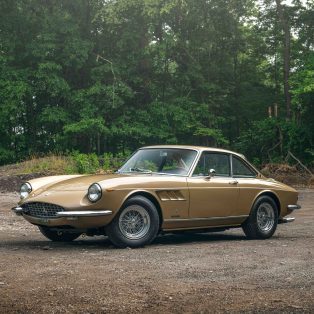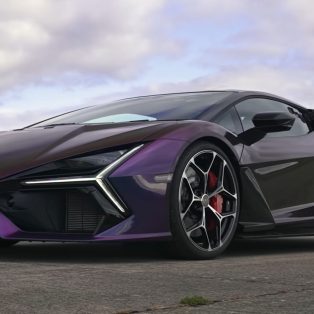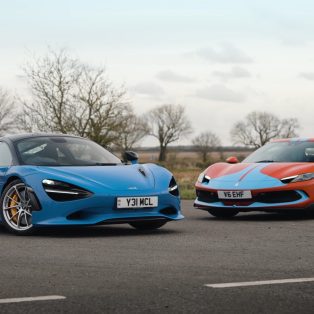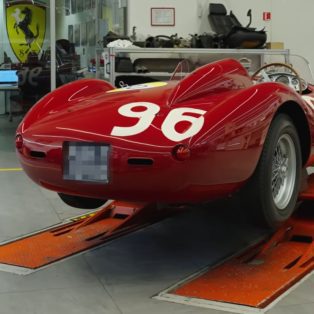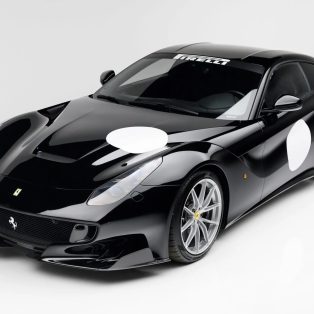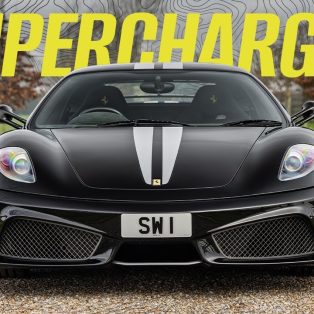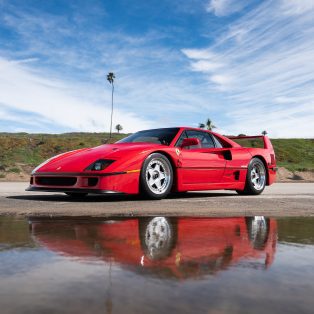Ferrari Mondial 8
Unveiled at the Geneva Motor Show in March 1980, Ferrari named the Mondial after their famous line of four-cylinder sports racing cars cars from the 1950s. The Mondial 8 was only available as a Coupe but all three subsequent iterations could be ordered as Cabriolets.
Compared to the 308 GT4 the Mondial’s new Tipo F108 AL 100 tubular steel chassis had a wheelbase extended by 100mm (to 2650mm). Track was widened by 35mm at the front and 57mm at the rear. Steel was used instead of fibreglass for the floor, inner arches and front bulkhead.
Twin fuel tanks had a combined capacity of 84-litres (up from 80) and were again mounted underneath the rear seats. Aside from new spring and damper rates (to counter extra weight) the Mondial’s independent suspension layout was practically identical to the other 308 models. It consisted of unequal length wishbones with coil springs and telescopic Koni dampers.
Anti-roll bars were fitted at either end and the four-wheel ventilated disc brakes ran off separate hydraulic systems for each axle. The five spoke Cromodora light alloy wheels were designed for Michelin’s new metric TRX low profile tyres. Special metric-sized wheels were created for the 240/55 VR 390 tyres.
The Mondial 8 was powered by an upgraded version of the small-displacement V-8 Ferrari created in the early 1960. Revised into a 2.9-liter for the 308 GT and 308 GTB in the mid-1970s, the V-8 unit received fuel injection in 1980. In the Mondial 8, the unit cranked out 214 horsepower and 181 pound-feet of torque. It was the least powerful Ferrari that year and many labeled its performance as unworthy for the marque. The engine and five-speed gearbox were mounted in unit. This assembly (together with the rear suspension) was bolted to a subframe that could be dropped out out of the car for easy maintenance.
The Mondial marked a few debuts for Ferrari. First, it was the first Prancing Horse with the entire engine/gearbox/rear suspension assembly built on a detachable steel subframe. This design made engine removal for a major rebuild or cylinder head removal much easier than it was on previous models. It also reduced maintenance costs. Second, the conventional “H” shift pattern of the gearbox was ditched for one with the first gear situated in a “dog leg” to the left and back, behind reverse. This pattern allowed quicker gear shifts between second and third gear and also between fourth and fifth. The five-speed manual was the only gearbox offered on the Mondial 8 and this didn’t change until 1989, when the Mondial t also received an automated manual.
From a performance perspective the Mondial was weak. 0-60 acceleration time was a glacial 9.4 seconds and top speed was a paltry 143 mph. By comparison, the 250-horsepower Lamborghini Jalpa needed 7.3 seconds for the 0-to-60 run, 15.4 ticks for the quarter-mile, while the 219-horsepower Porsche 928 achieved the benchmarks in seven and 15.6 seconds, respectively.
Pictures
Specs & Performance
| submitted by | Richard Owen |
| type | Series Production Car |
| built at | Italy |
| price $ | $ 67,500 |
| engine | V8 |
| valvetrain | DOHC 2 Valves / Cyl |
| displacement | 2926 cc / 178.6 in³ |
| bore | 81 mm / 3.19 in |
| stroke | 71 mm / 2.8 in |
| compression | 8.8:1 |
| power | 159.6 kw / 214.0 bhp @ 6600 rpm |
| specific output | 73.14 bhp per litre |
| bhp/weight | 148.1 bhp per tonne |
| torque | 245 nm / 180.7 ft lbs @ 4600 rpm |
| body / frame | Steel Over Tubular Frame |
| driven wheels | Mid Engine / RWD |
| front tires | 240/55VR390 |
| rear tires | 240/55VR390 |
| front brakes | Vented Discs w/Vaccum Assist |
| rear brakes | Vented Discs w/Vaccum Assist |
| front wheels | F 390 x 180 cm / 153.5 x 70.9 in |
| rear wheels | R 390 x 180 cm / 153.5 x 70.9 in |
| steering | Rack & Pinion |
| curb weight | 1445 kg / 3186 lbs |
| wheelbase | 2650 mm / 104.3 in |
| front track | 1495 mm / 58.9 in |
| rear track | 1517 mm / 59.7 in |
| length | 4580 mm / 180.3 in |
| width | 1790 mm / 70.5 in |
| height | 1250 mm / 49.2 in |
| transmission | 5-Speed Manual |
| gear ratios | 3.58:1, 2.35:1, 1.69:1, 1.24:1, 0.95:1 |
| final drive | 3.71:1 |
| top speed | ~230 kph / 142.9 mph |
| 0 – 60 mph | ~9.4 seconds |
| 0 – 100 mph | ~28.1 seconds |
| 0 – 1/4 mile | ~17.1 seconds |





